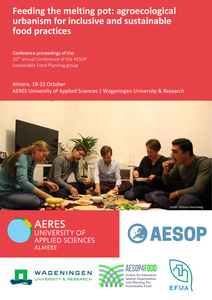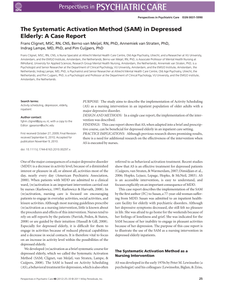Urban Consolidation Centres (UCCs) are often put forward as a solution to reduce the negative impact of freight transport on cities. However, few UCCs have so far successfully attracted sufficient volume to become viable. Receivers of goods can potentially be effective initiators of a UCC, due to their buying power. The purpose of this research is to learn how receiver-led consolidation initiatives develop. We use qualitative data on four receiver-led UCCs in The Netherlands to understand the success factors and challenges in various stages of development. Our research shows that receivers can help during the start-up stage of a UCC, when they have a large volume of goods, can convince internal stakeholders, and are willing to pay or can make suppliers pay. However, receiver-led UCCs still face challenges related to growth in the later stages and require continuous effort to attract volume.
DOCUMENT

from the article: "Abstract The way in which construction logistics is organised has considerable impact on production flow, transportation efficiency, greenhouse gas emissions and congestion, particularly in urban areas such as city centres. In cities such as London and Amsterdam municipalities have issued new legislation and stricter conditions for vehicles to be able to access cities and city centres in particular. Considerate clients, public as well private, have started developing tender policies to encourage contractors to reduce the environmental impact of construction projects. This paper reports on an ongoing research project applying and assessing developments in the field of construction logistics in the Netherlands. The cases include contractors and third party logistics providers applying consolidation centres and dedicated software solutions to increase transportation efficiency. The case show various results of JIT logistics management applied to urban construction projects leading to higher transportation efficiencies, and reduced environmental impact and increased production efficiency on site. The data collections included to-site en on-site observations, measurement and interviews. The research has shown considerable reductions of vehicles to deliver goods and to transport workers to site. In addition the research has shown increased production flow and less waste such as inventory, waiting and unnecessary motion on site."
DOCUMENT

These conference proceedings to the 10th annual conference of the AESOP Sustainable Food Planning group are organised as follows: the following four sections contain the short papers belonging to the four tracks that made up the conference (social inclusion; urban agriculture; urban planning, design and development; food governance). The last section consists of the abstracts of the book and poster presentations, a short report on the YAP workshop held at the first day of the conference, and a short report on the excursion organised at the last conference day.
DOCUMENT

Complex interventions are criticized for being a “black box”, which makes it difficult to determine why they succeed or fail. Recently, nine proactive primary-care programs aiming to prevent functional decline in older adults showed inconclusive effects. The aim of this study was to systematically unravel, compare, and synthesize the development and evaluation of nine primary-care programs within a controlled trial to further improve the development and evaluation of complex interventions. A systematic overview of all written data on the nine proactive primary-care programs was conducted using a validated item list.
DOCUMENT

From the article: Abstract Since decision management is becoming an integrated part of business process management, more and more decision management implementations are realized. Therefore, organizations search for guidance to design such solutions. Principles are often applied to guide the design of information systems in general. A particular area of interest when designing decision management solutions is compliance. In an earlier published study (Zoet & Smit, 2016) we took a general perspective on principles regarding the design of decision management solutions. In this paper, we re-address our earlier work, yet from a different perspective, the compliance perspective. Thus, we analyzed how the principles can be utilized in the design of compliant decision management solutions. Therefore, the purpose of this paper is to specify, classify, and validate compliance principles. To identify relevant compliance principles, we conducted a three round focus group and three round Delphi Study which led to the identification of eleven compliance principles. These eleven principles can be clustered into four categories: 1) surface structure principles, 2) deep structure principles, 3) organizational structure principles, and 4) physical structure principles. The identified compliance principles provide a framework to take into account when designing information systems, taking into account the risk management and compliance perspective.
DOCUMENT

This book provides insight into an ambitious project to re-invent the educational method practiced at NHL Stenden. The predecessors used different approaches to the delivery of education. One of them used Competency-Based Education, whilst the other practiced Problem-Based Learning. The choice to combine the advantages of both methods, as well as to develop an entirely new concept that provided a better response to the fast and ever-increasing pace of changes in the workplace, was made by both institutions together. This approach was called Design-Based Education (DBE). Given the significant changes required of stakeholders to facilitate learning according to the new DBE approach, it is important to take stock of what these changes mean in terms of teaching and learning and to ascertain from early steps how everybody can stay, or step, on board.
DOCUMENT

The study aims to describe the implementation of Activity Scheduling (AS) as a nursing intervention in an inpatient population of older adults with a major depressive disorder. DESIGN AND METHODS: In a single case report, the implementation of the intervention was described. FINDINGS: This case report shows that AS, when adapted into a brief and prescriptive course, can be beneficial for depressed elderly in an inpatient care setting. PRACTICE IMPLICATIONS: Although previous research shows promising results, there is a need for additional research on the effectiveness of the intervention when AS is executed by nurses.
DOCUMENT

Since an increasing amount of business decision/logic management solutions are utilized, organizations search for guidance to design such solutions. An important aspect of such a solution is the ability to guard the quality of the specified or modified business decisions and underlying business logic to ensure logical soundness. This particular capability is referred to as verification. As an increasing amount of organizations adopt the new Decision Management and Notation (DMN) standard, introduced in September 2015, it is essential that organizations are able to guard the logical soundness of their business decisions and business logic with the help of certain verification capabilities. However, the current knowledge base regarding verification as a capability is not yet researched in relation to the new DMN standard. In this paper, we re-address and - present our earlier work on the identification of 28 verification capabilities applied by the Dutch government [1]. Yet, we extended the previous research with more detailed descriptions of the related literature, findings, and results, which provide a grounded basis from which further, empirical, research on verification capabilities with regards to business decisions and business logic can be explored.
DOCUMENT

This study theorizes on the sociomateriality of food in authority-building processes of partial organizations by exploring alternative food networks (AFNs). Through the construction of arenas for food provisioning, AFNs represent grassroots collectives that deliberately differentiate their practices from mainstream forms of food provisioning. Based on a sequential mixed-methods analysis of 24 AFNs, where an inductive chronological analysis is followed by a qualitative comparative analysis (QCA), we found that the entanglements between participants’ food provisioning practices and food itself shape how authority emerges in AFNs. Food generates biological, physiological and social struggles for AFN participants who, in turn, respond by embracing or avoiding them. As an outcome, most AFNs tend to bureaucratize over time according to four identified patterns while a few idiosyncratically build a more shared basis of authority. We conclude that the sociomateriality of food plays an important yet indirect role in understanding why and how food provisioning arenas re-organize and forge their forms of authority over time. Pascucci, S., Dentoni, D., Clements, J., Poldner, K., & Gartner, W. B. (2021). Forging Forms of Authority through the Sociomateriality of Food in Partial Organizations. Organization Studies, 42(2), 301-326. https://doi.org/10.1177/0170840620980232
DOCUMENT

This is an Accepted Manuscript of an article published by Taylor & Francis in INTERNATIONAL SPECTATOR on 31-01-2022, available online: https://www.tandfonline.com/doi/abs/10.1080/03932729.2021.2007610 In July 2015, after intense negotiations with its creditors, Greece received a bailout in exchange for fiscal restraint. The coalition government at that time, led by the left-wing SYRIZA party, elected on the basis of an anti-austerity platform, eventually accepted the prevalent austerity frames of the creditors. Through the aid of Q-method, an analysis of Greek opinion leaders’ views of the negotiation highlights that this outcome can be explained in two different ways. The first posits that the ideological overtones that ruling SYRIZA injected in its negotiation strategy exhibited a lack of socialisation and undermined Greece’s already weak bargaining position. The second focuses on the institutional status quo bias in the Eurogroup in Germany’s favour, which discourages any change in the Eurozone. These two views may have partly been influenced by questions of political accountability.
MULTIFILE
